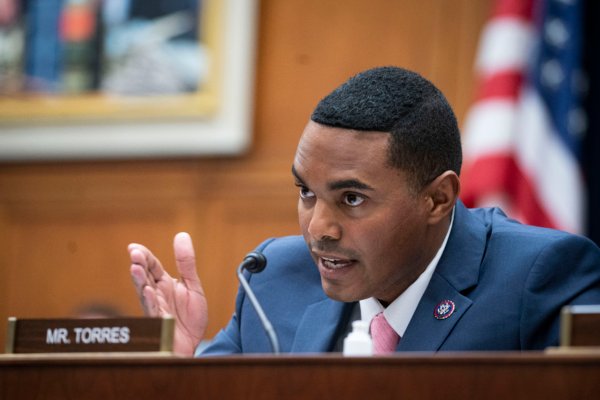New York City’s Education Policy Panel (PEP) is set to vote on the contract for the administration of the Specialized High School Admissions Test (SHSAT) on December 18th. Bronx Congressman Ritchie Torres wrote to PEP on the 11th urging immediate approval of the computerization of the SHSAT.
The contract was initially scheduled for a vote in October after the testing company Pearson Inc. was awarded the contract again. The contract aims to modernize the SHSAT by transitioning from a paper-and-pencil test to a computerized format. However, the vote was withdrawn and postponed to November 20th, and subsequently delayed to December 18th. The repeated delays have raised concerns in the Chinese community about whether the exam will proceed as scheduled next year and may impact students who have invested significant effort in preparing for the test.
Last month, over 2,500 parents signed an open letter urging PEP to approve the SHSAT contract to avoid disruption to the admissions process. The letter highlighted that the SHSAT is the sole criteria for admission to eight specialized high schools, involving over 16,000 students. New York City Councilwoman Margaret Chin and State Assemblyman Ron Kim also jointly wrote to Mayor Adams and the Schools Chancellor emphasizing the urgency of contract approval. In addition, the City Council’s Common Core Group will gather at City Hall on Thursday to urge community leaders and parent representatives to actively participate.
Bronx Congressman Ritchie Torres also joined the call. In his letter yesterday, he stated, “PEP has been delaying the computerization of the management, seemingly attempting to undermine the test itself. Computerization is a natural trend in the digital development of human society, and there should be no dispute or reason for delaying the contract signing.”
The 1972 Hecht-Calandra Act mandates standardized testing as the sole criterion for admission to specialized high schools. Torres pointed out that PEP must view the implementation of the SHSAT as a legal obligation, not a policy choice. By indefinitely and provocatively delaying the contract, PEP’s management is undermining the state’s law, and its delaying tactics could jeopardize the SHSAT.
He wrote in the letter, “The government should listen to the voices of the local people, rather than succumbing to the coercion of interest groups. I have spoken with countless New Yorkers, especially members of the Asian community, who see the attack on the SHSAT as an attack on their path to success. For many from humble backgrounds, the SHSAT provides a validated path from poverty to prosperity. PEP is not paving the way for the American dream but rather setting up barriers that could bring nightmares to New Yorkers.”
“The long-standing ideological battle over specialized schools has created deep divisions and proposed 110 solutions to improve educational outcomes in Black and Brown communities, which will only alienate and antagonize the Asian community, deepening the crisis. We are facing the worst-case scenario of dividing New Yorkers without solving issues. It’s time to choose problem-solving over polarization.”
Torres urged PEP, “Stop politicizing the SHSAT, stop polarizing the people of New York, and start focusing on fundamentally improving the entire system. PEP oversees more than 1,500 schools, and the excessive obsession with eight schools is missing the forest for the trees, creating divisions instead of solving problems.”

